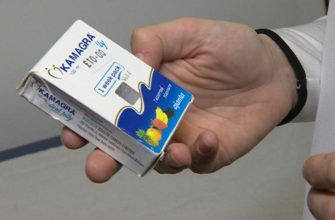If you are looking to regain control and confidence, Tadalafil may be the key. This medication, often known under the brand name Cialis, is designed to help men who experience erectile dysfunction. It works by increasing blood flow to the penis during sexual stimulation, allowing you to achieve and maintain an erection.
How does Tadalafil achieve this? It targets a specific enzyme, PDE5, in your body. This enzyme can restrict blood flow, but Tadalafil counteracts its effects. So, you might be wondering, what ddoes this mean for you? It means a potential return to spontaneous intimacy without the pressure of planning around immediate-acting medications. The great benefit is that it can work for up to 36 hours, earning it the nickname “the weekend pill”.
While Tadalafil offers considerable benefits, understanding the proper usage and potential side effects is crucial. Before starting, discuss your medical history and any current medications with your doctor. This helps ensure Tadalafil is a safe and suitable option for you, leading to a better experience and improved sexual health.
- Tadalafil (Erectile Dysfunction): How Cialis Works
- The Role of PDE5 Inhibitors
- Important Considerations Before Taking Cialis
- What is Tadalafil and Cialis?
- How Cialis Facilitates an Erection
- Cialis Dosage: Finding the Right Amount
- Adjusting Your Cialis Dosage
- Cialis Daily vs. On-Demand
- Cialis: Onset, Duration, and Timing
- How Cialis Works: A Quick Look
- Planning Your Cialis Dosage
- Cialis: Potential Side Effects to Consider
- Cialis vs. Other ED Medications
- Understanding Onset and Duration
- Side Effects to Anticipate
Tadalafil (Erectile Dysfunction): How Cialis Works
Cialis work by increasing blood flow to the penis. Specifically, it relaxes the muscles in the blood vessel walls, which then allows more blood to enter. This makes it easier to achieve and maintain an erection when sexually stimulated.
The Role of PDE5 Inhibitors
Cialis belongs to a group of medications called PDE5 inhibitors. These medications block the action of an enzyme called phosphodiesterase-5 (PDE5). PDE5 is present in the penis and can constrict blood vessels, making erections difficult. By inhibiting PDE5, Cialis keeps blood vessels relaxed, allowing for better blood flow.
How long does Cialis work? Unlike some other erectile dysfunction medications, Cialis has a longer duration of action. It can work for up to 36 hours. This allows for more spontaneity compared to medications with shorter durations.
Important Considerations Before Taking Cialis
Talk to your doctor before starting Cialis. They will assess your overall health and determine if it is a safe medication for you. Certain medical conditions, such as heart problems, or other medications, can interact with Cialis. Your doctor can advise on the appropriate dosage and potential side effects. Remember that Cialis does not increase sexual desire; it only helps with the physical aspect of erections. Sexual stimulation is still needed for Cialis work. Also, do not take Cialis with other PDE5 inhibitors.
What is Tadalafil and Cialis?
Tadalafil is the active ingredient in Cialis. Cialis is a brand-name medication. Both treat erectile dysfunction (ED) by helping increase blood flow to the penis during sexual stimulation.
So, how does it work? Tadalafil, and thus Cialis, inhibits an enzyme called phosphodiesterase type 5 (PDE5). This enzyme breaks down a substance that relaxes smooth muscles in the penis, allowing for increased blood flow. By inhibiting PDE5, tadalafil helps maintain that relaxed state, improving erections.
Cialis is available in different dosages. Some are designed for daily use, providing readiness for sexual activity anytime. Others are taken as needed, usually before sexual activity. Discuss the best option for you with your doctor. A key benefit is the longer duration of action, which can be up to 36 hours, earning it the nickname “the weekend pill.” This extended period allows for more spontaneity.
While effective, Cialis (tadalafil) can have side effects. Common ones include headache, muscle aches, flushing, and nasal congestion. More serious side effects are rare but possible; seek medical attention if you experience chest pain, vision changes, or a prolonged erection lasting more than four hours.
How Cialis Facilitates an Erection
Cialis promotes an erection by increasing blood flow to the penis. It achieves this by inhibiting an enzyme called phosphodiesterase type 5 (PDE5). Here’s how it work: When sexually stimulated, your body releases nitric oxide.
Nitric oxide triggers the production of cyclic guanosine monophosphate (cGMP), which relaxes smooth muscle tissue in the penis, allowing increased blood flow. PDE5 then breaks down cGMP, reducing blood flow and causing the erection to subside. Cialis steps in by blocking PDE5, preventing the breakdown of cGMP.
With cGMP levels elevated, the smooth muscles stay relaxed, allowing for sustained increased blood flow when you are aroused. This enhanced blood flow helps you achieve and maintain an erection firm enough for sexual activity. Cialis does not cause an erection automatically; sexual stimulation is still required for the process to begin.
Cialis Dosage: Finding the Right Amount
Start with a 10mg Cialis dose if you’re new to the medication. This often strikes a good balance between efficacy and minimizing potential side effects. Take it about 30 minutes before anticipated sexual activity.
How long does Cialis last? Its effects can last up to 36 hours, earning it the nickname “the weekend pill.” Remember, it doesn’t cause an erection automatically; you still need sexual stimulation.
Adjusting Your Cialis Dosage
If 10mg does not provide adequate results, talk to your doctor. They might suggest increasing the dose to 20mg. Conversely, if you experience bothersome side effects at 10mg, they may recommend decreasing it to 5mg.
Cialis Daily vs. On-Demand
For frequent sexual activity (twice a week or more), consider Cialis Daily. This involves taking a low dose (2.5mg or 5mg) every day. This allows for spontaneity because Cialis is already in your system. Discuss with your doctor to determine which option, on-demand or daily, best suits your lifestyle and medical history.
Individual responses to Cialis vary. Factors like age, other medications you’re taking, and underlying health conditions can all influence how well Cialis works and what side effects you might experience. Always follow your doctor’s instructions and never exceed the prescribed dose.
Cialis: Onset, Duration, and Timing
Cialis typically begins to work within 30 minutes to 2 hours after you take it. You should take Cialis before sexual activity, but it can remain effective for up to 36 hours. This extended duration distinguishes Cialis from other erectile dysfunction medications, allowing for more spontaneity. The timing of when you take Cialis depends on your individual needs and lifestyle.
How Cialis Works: A Quick Look
Cialis works by increasing blood flow to the penis. The active ingredient, tadalafil, helps to relax the muscles in the penis, which permits increased blood flow, facilitating an erection when sexual stimulation occurs.
Planning Your Cialis Dosage
- Daily Use: Some men prefer to take a low dose of Cialis every day. This keeps a consistent level of the medication in your system, making it easier to achieve an erection whenever the moment is right.
- On-Demand Use: Alternatively, you can take a higher dose of Cialis only when you anticipate sexual activity. Remember that it could take up to 2 hours for Cialis to work, so plan accordingly.
Consider these points when deciding how to time your Cialis dosage:
- Food Intake: Food intake doesn’t significantly affect how Cialis works. You can take it with or without food.
- Alcohol Consumption: Limit alcohol consumption, as it can increase the risk of side effects and may decrease the ability to achieve an erection.
- Other Medications: Ensure Cialis is safe to take with your other medications by consulting with your healthcare provider.
Cialis: Potential Side Effects to Consider
Be aware that while Cialis can significantly improve erectile function, it may also cause side effects. Understanding these can help you decide if Cialis is the right choice for you and how to manage any potential issues.
Common side effects you might experience include headaches, muscle aches (myalgia), back pain, nasal congestion (stuffy nose), and facial flushing (redness). These are usually mild and temporary. If they become bothersome or persistent, consult with your doctor.
Less frequent, but more serious side effects, can include sudden decrease or loss of vision or hearing. If you experience either of these, stop taking Cialis immediately and seek emergency medical attention. Similarly, if you experience an erection lasting longer than four hours (priapism), seek immediate medical assistance to prevent damage.
Cialis can interact with other medications, potentially causing problems. Especially be cautious if you are taking nitrates for chest pain (angina) or alpha-blockers for high blood pressure or prostate enlargement. These combinations can lead to a dangerous drop in blood pressure. Let your doctor know all the medications and supplements you’re taking before starting Cialis. How Cialis interacts with other medications is important to consider.
Consider the following before taking Cialis:
| Side Effect | Likelihood | Management |
|---|---|---|
| Headache | Common | Over-the-counter pain relievers, stay hydrated |
| Muscle Aches/Back Pain | Common | Over-the-counter pain relievers, warm compress |
| Nasal Congestion | Common | Decongestants, saline nasal spray |
| Vision Changes | Rare | Stop Cialis and seek immediate medical attention |
| Hearing Loss | Rare | Stop Cialis and seek immediate medical attention |
| Priapism (prolonged erection) | Rare | Seek immediate medical attention |
Individual reactions to Cialis can vary. Your doctor can assess your overall health and any pre-existing conditions to determine if Cialis is safe and appropriate for you. Open communication with your doctor is key to a safe and fulfilling experience with Cialis. If you are unsure how does cialis work with your current health status, seek your doctor’s advice.
Cialis vs. Other ED Medications
Choose Cialis (tadalafil) if you value flexibility; you can take it daily or as needed. Other medications, like Viagra (sildenafil) and Levitra (vardenafil), generally require you to take them an hour before anticipated sexual activity. Understand how each works:
- Cialis: Maintains effects for up to 36 hours, earning it the nickname “the weekend pill.” Doses range from 2.5mg to 20mg. Daily use maintains a constant drug level in your body.
- Viagra & Levitra: Offer a shorter window of opportunity, usually around 4-5 hours. Sildenafil comes in doses from 25mg to 100mg, and vardenafil from 2.5mg to 20mg.
Understanding Onset and Duration
Consider the onset and duration. Sildenafil and vardenafil typically take effect within 30-60 minutes. Tadalafil can work within 30 minutes, and its longer duration lets you be more spontaneous.
Side Effects to Anticipate
Be aware of potential side effects. All ED medications share similar side effects: headache, flushing, nasal congestion, and visual changes. However, back pain and muscle aches are more commonly reported with tadalafil. Consult your doctor if you experience bothersome side effects, especially if they don’t resolve after the medication wears off. Discuss how the benefits compare with the risks to decide on the appropriate medication. What do you need to consider to ensure a safe and positive outcome?






